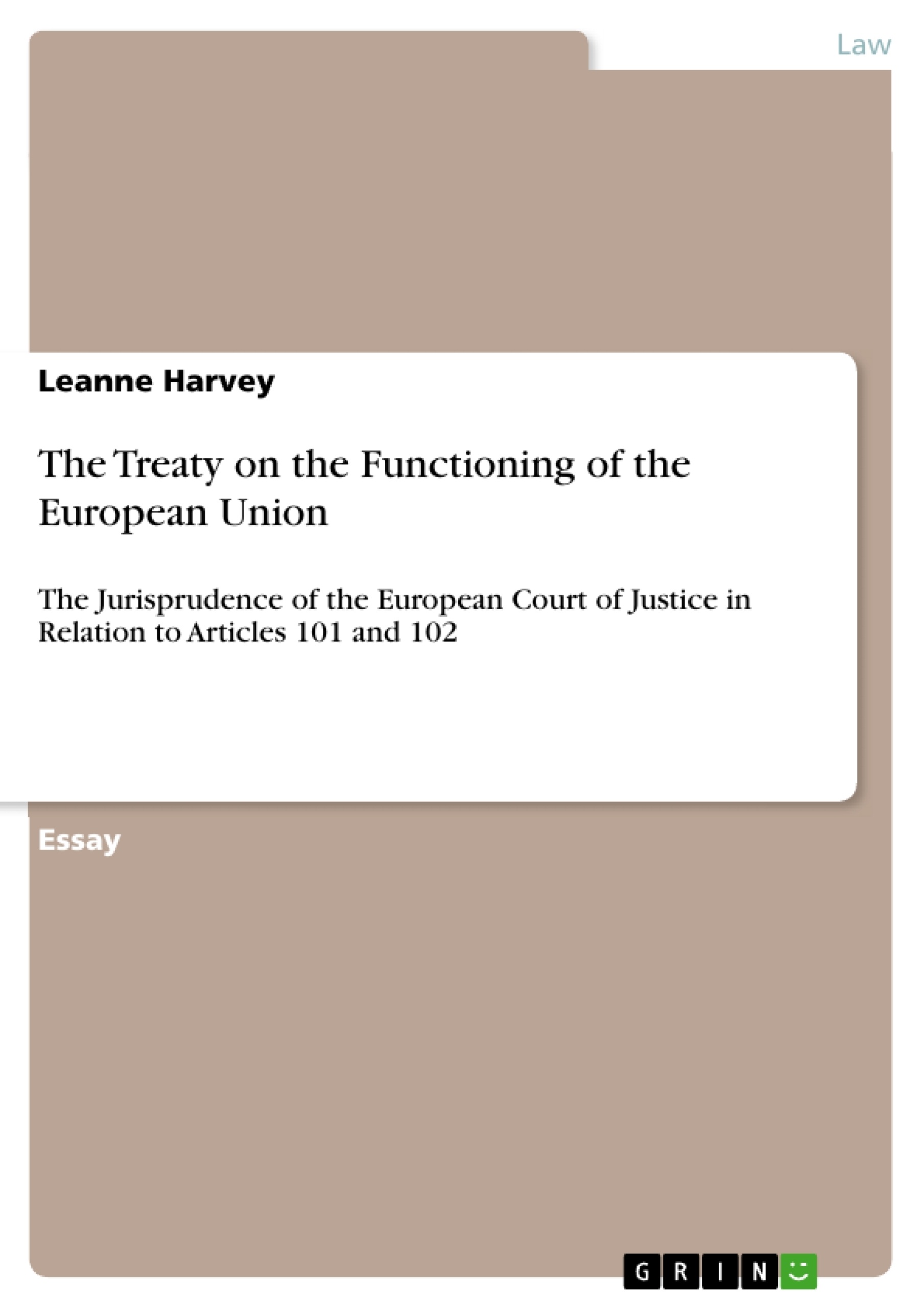To explore the nature of the relationship between the economist and the competition lawyer it requires the exploration of several different areas of thought, as it is a difficult relationship to define.
The two institutions are interchangeable at times, and even more considerably when examining the role of economic terms in the legal argument when it comes to the interpretation of competition law, namely Articles 101 and 102 of the Treaty of the Functioning of the European Union (formally numbered as 81 and 82 of the Treaty of Amsterdam, for the duration of this essay will simply be referred to as Articles 101 and 102); together combined formulate the provisions which regulate the single market. The history of competition law reveals the importance of regulation within the market to support economists’ visions which are naturally reflected in the evolution of judgments concerning the economic terms used in Articles 101 and 102’s judgments.
Inhaltsverzeichnis (Table of Contents)
- Introduction
- History
- Economist v Competition Lawyer
- Prohibited by 101
- The term 'undertakings'
- The principle of effects based approach
- Agreements
- Prohibited by 102
Zielsetzung und Themenschwerpunkte (Objectives and Key Themes)
This text explores the complex relationship between economists and competition lawyers in the context of European Union competition law. The text examines the influence of economic principles on the interpretation and application of EU competition law, particularly Articles 101 and 102 of the Treaty on the Functioning of the European Union, which regulate the single market.
- The historical development of EU competition law and the growing recognition of economics.
- The role of economic analysis in competition law cases, particularly in relation to Articles 101 and 102.
- The importance of the "effects based approach" in EU competition law.
- The definition and application of economic terms such as "undertakings" and "dominant position" in competition law.
- The different types of agreements prohibited by Article 101 and the role of consumer welfare in their assessment.
Zusammenfassung der Kapitel (Chapter Summaries)
- Introduction: Introduces the topic of the relationship between economists and competition lawyers, highlighting the importance of economic concepts in interpreting and applying EU competition law.
- History: Traces the roots of EU competition law in US antitrust law, discussing the shift towards an "effects based approach" in competition law enforcement and the growing significance of economics.
- Economist v Competition Lawyer: Explores the contrasting perspectives of competition lawyers and economists on the application of competition law, arguing for the value of both disciplines in the legal argument.
- Prohibited by 101: Examines the legal definition of "undertakings" and its implications for competition law cases. It also discusses the "effects based approach" and its application in assessing whether agreements between undertakings restrict competition.
Schlüsselwörter (Keywords)
Key terms and concepts explored in this text include: EU competition law, Articles 101 and 102, "effects based approach", "undertakings", "dominant position", "relevant product market", "agreements", "consorted practice", "predatory pricing", and consumer welfare.
Frequently Asked Questions
What is the central topic of this text on EU law?
The text explores the complex relationship between economists and competition lawyers regarding the interpretation of EU competition law.
Which articles of the TFEU are specifically discussed?
The focus is on Articles 101 and 102 of the Treaty on the Functioning of the European Union, which regulate the single market.
What is the "effects based approach" in competition law?
It is a principle where legal assessments focus on the actual economic impact of market behaviors rather than just their formal legal structure.
How is the term "undertakings" relevant to Article 101?
"Undertakings" is a legal-economic term used to define the entities (companies or organizations) subject to competition regulations.
What role does consumer welfare play in this context?
Consumer welfare is a key economic objective used to assess whether certain agreements or dominant positions negatively affect the market.
- Quote paper
- Leanne Harvey (Author), 2017, The Treaty on the Functioning of the European Union, Munich, GRIN Verlag, https://www.grin.com/document/368565



